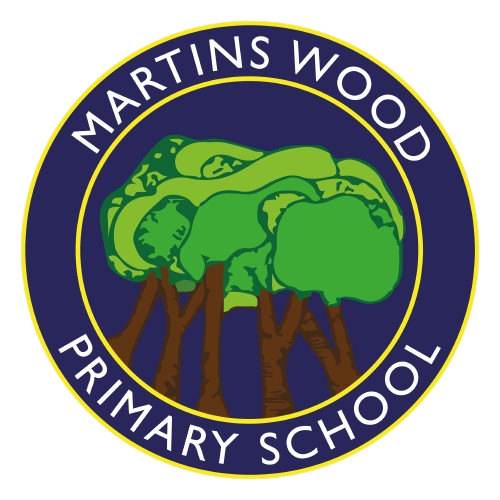Early Years
Welcome to Martins Wood Early Years
At Martins Wood we are delighted to offer Early years provision for 2 years old. Children can join us in our preschool, Saplings, from the term after their second birthday. Children can then transition into our purpose built Nursery in September of the year before they start at school in Reception. You can find information on applying for a preschool or Nursery place for your child on the Parent Information tab of our school website.
At Martins Wood, we believe that each child has the capability to thrive regardless of circumstance or background. Our school motto ‘inspiring an ambition to learn’ underpins everything we do, as we guide children on their journey to a lifelong love of learning.
Early Years Curriculum
We deliver a broad and balanced curriculum, with high expectations for all. Staff work collaboratively with parents and carers, and we value a strong homeschool partnership. Early Years staff adapt their teaching opportunities to match the needs of all children. This is achieved through both encouragement and challenge.
We believe in creating a safe and nurturing environment where every child feels valued and heard. By establishing positive relationships and promoting independence, our youngest children can take risks, be curious and develop resilience.
Children’s individual progress is tracked through continuous formative assessment across all areas of their development. Our provision balances structured learning with purposeful play. Children leave Reception ready for the next step in their learning.
The seven areas of Learning - linked to the guidance by the Department for Education
Your child will be learning skills, acquiring new knowledge and demonstrating their understanding through seven areas of learning and development.
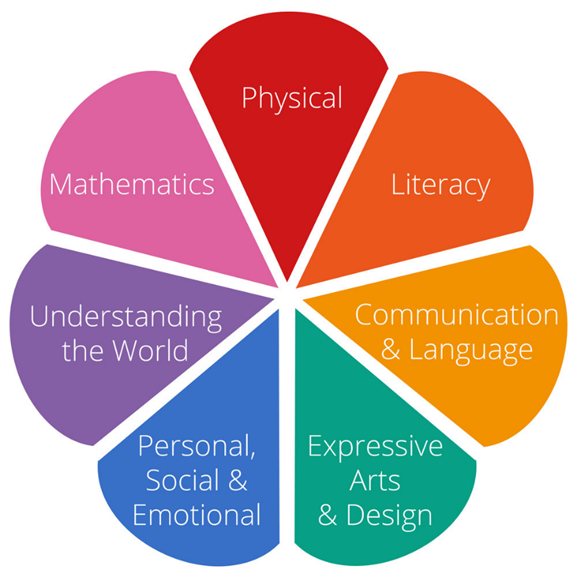
Communication & Language
This area underpins all seven areas of learning and development in the Early Years. The interactions young children experience play a vital role in their language and cognitive development.
Practitioners understand the importance of building children’s language. Throughout the school day, adults support children to develop quality conversations in a language-rich environment. Adults comment on what children are interested in or doing, and echo back what they say. When needed, adults remodel children’s spoken language into sentences and add new vocabulary to extend children's learning.
In Early Years and beyond, children are read daily, and we endeavour to engage them actively in stories, non-fiction texts, rhymes and poems. Children are given opportunities to use and embed new vocabulary through conversation, story-telling and role play.
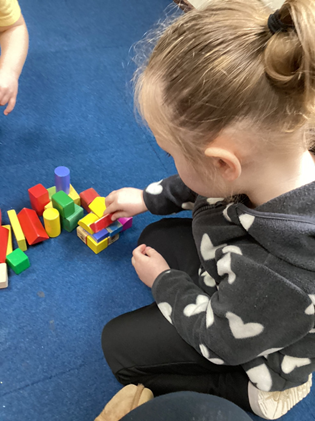
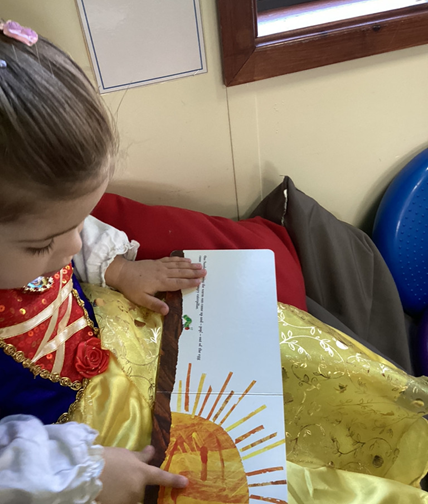
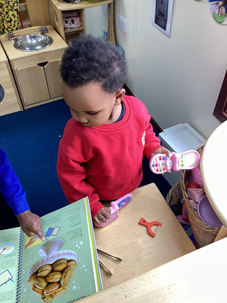

Physical Development
Children engage in a variety of activities throughout the day to develop their gross and fine motor skills. Physical activity is vital in children’s all-round development.
During Child Initiated Learning and adult led PE sessions, children develop their gross motor skills to support them in developing healthy bodies, balance, strength, agility and spatial awareness. Physical activity has a positive impact on social and emotional well-being.
Fine motor control activities are provided for children as soon as they enter the classroom during 'busy fingers'. These activities support children with their hand-eye co-ordination and help control children's hand, fingers and thumb muscles. This develops dexterity, precision and strength in preparation for early writing. Staff offer repeated and varied opportunities using small tools, offering support to develop children’s confidence and proficiency.
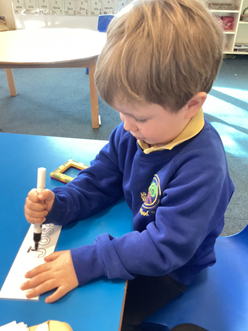
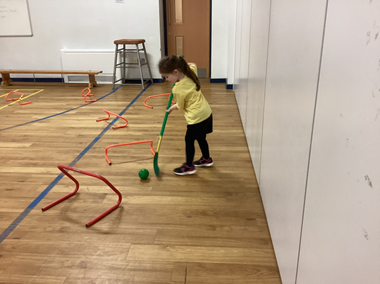
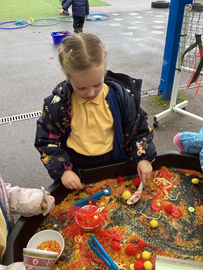
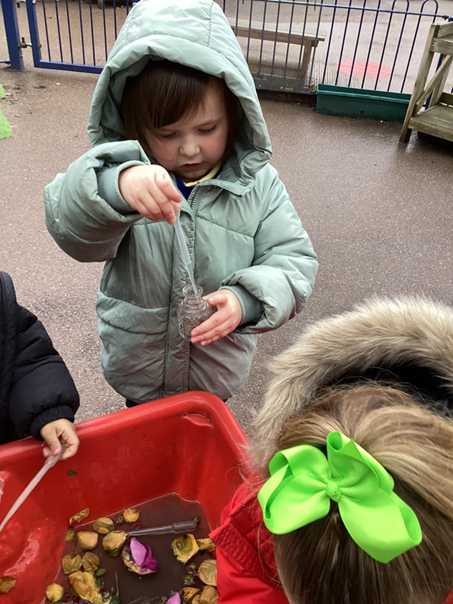
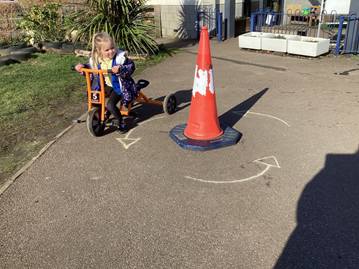
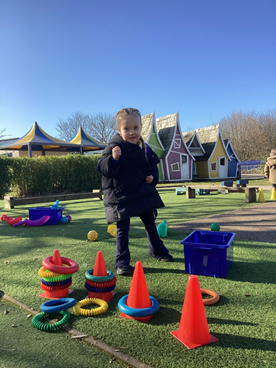
Personal, Social and Emotional Development
Children’s personal, social and emotional development (PSED) is crucial for children to lead healthy and happy lives, and is fundamental to their cognitive development.
Children build strong and supportive relationships with adults. We support children in learning how to understand their own feelings and those of others. This includes supporting children to set simple goals, gaining confidence in their abilities, managing their own emotions, persevering, growing resilience and developing a positive sense of self. Children follow routines and develop an understanding of boundaries, knowing at times they have to wait for what they want.
Through adult modelling and guidance, children learn how to look after their bodies and this is supported by their interactions with other children. They learn how to make good friendships, co-operate and resolve conflicts.
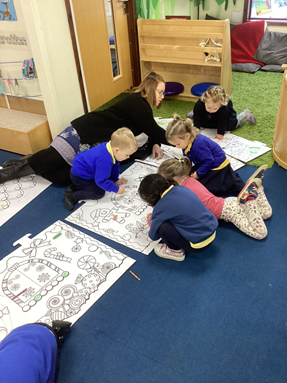
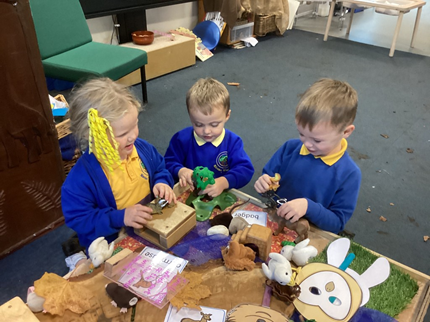
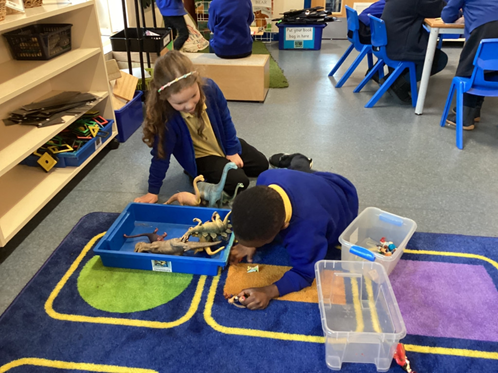
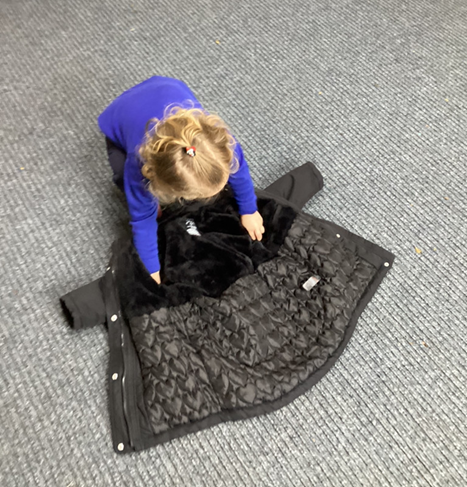
Literacy
Children developing a life-long love of reading within our setting is of the utmost importance. Children are provided with an abundance of rich language comprehension opportunities, and they are taught to read words through our robust reading curriculum.
Our children begin their language comprehension journey in their first moments at preschool. Our skilled adults take the time to talk with children about the world around them, share a variety of stories and non-fiction books, enjoy rhymes, poems and songs together as part of the daily routine. Our star stories and rhymes help children to become familiar and gain a love of a variety of quality texts.
At Martinswood, children develop their writing skills from their first days at school. In Preschool, opportunities to develop gross and fine motor skills are prioritised. In Nursery children explore a wide range of mark making tools that support them in being able to give meaning to their marks and then into the transcription of writing, focusing on spelling, handwriting and composition as they continue their literacy learning journey into Reception and beyond.
In Preschool children are given opportunities to tune into sounds around them, preparing them to begin learning through our chosen phonics programme, Little Wandle, when they start Nursery. In Nursery, we lay the best possible foundations for Phase 2 phonics in Reception with our nursery rhyme activities, phonological awareness and oral blending games. Then, in Reception, children are taught skilled word reading, involving both the speedy working out of the pronunciation of unfamiliar printed words (decoding) and the speedy recognition of familiar printed words.
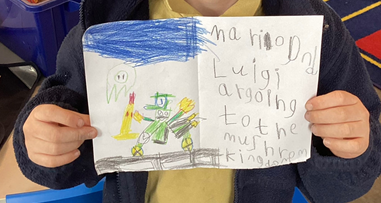
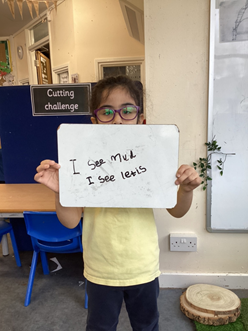
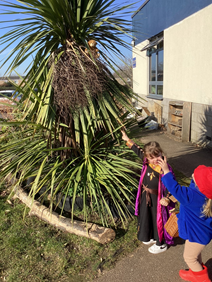
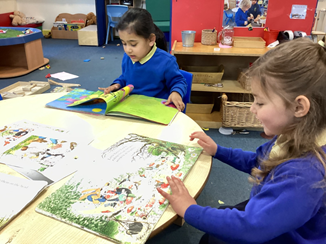
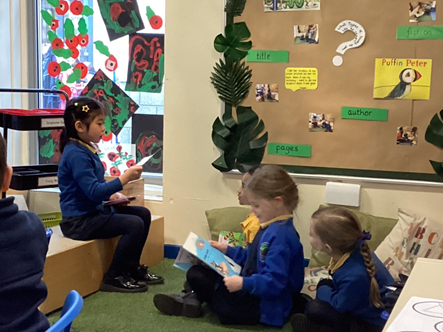
Maths
Children in our Early Years develop a grounding in numbers so that they have the building blocks to succeed mathematically.
We endeavour for all children to be able to count confidently, develop a deep understanding of the numbers to 10, the relationships between them and the patterns within those numbers when they leave Reception. Children have frequent and varied opportunities to build and apply this understanding, supported by the use of manipulatives and an understanding of mathematical vocabulary from which mastery of mathematics is built. Children also have rich opportunities to develop their spatial reasoning skills across all areas of mathematics, including shape, space and measures.
At Martinswood we promote a positive attitude and interest in mathematics from Preschool. Children look for patterns, spot connections and ‘have a go.’ We nurture talk around numbers and patterns. We want children to talk about what they notice and not be afraid of mistakes. Knowing this only helps them to learn.
